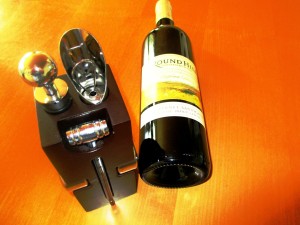Story Behind Cool French Title
Have you ever wondered what the cool looking people who seem to know a lot about wine… the people we call “sommeliers” really do? Because they aren’t just some fancy French title that make they sound cool in the restaurant. With a fancy french title, comes a huge responsibility.
 If you’re a wine lover, then you’ve probably had more than a few days where you’ve turned to the delicious elixir as a way to sooth your misery after a hard day at work. If you’re a big-time wine enthusiast, then you may have even wondered if there’s a way to enjoy the blessed beverage and make money at the same time. As a result, you may have thought about opening your own restaurant, bar, or vineyard. And the first person you think of is… of course “the sommelier”!
If you’re a wine lover, then you’ve probably had more than a few days where you’ve turned to the delicious elixir as a way to sooth your misery after a hard day at work. If you’re a big-time wine enthusiast, then you may have even wondered if there’s a way to enjoy the blessed beverage and make money at the same time. As a result, you may have thought about opening your own restaurant, bar, or vineyard. And the first person you think of is… of course “the sommelier”!
Sommeliers are an interesting bunch. We generally only find them in our better restaurants, where they occupy a specialist role among the front-of-house team. Most people’s exposure to them consists of a brief conversation at a restaurant table when they are selecting a wine or wines to go with their food, but there is a lot more to the sommelier’s job than pulling corks and waxing lyrical with adjective-rich descriptions of the wine.
 A sommelier or wine steward is a person who is an expert in fine wine and is responsible for serving it to patrons. The sommelier is French in origin and originally a wine steward’s job was to serve royalty. Modern sommeliers offer their services to fine restaurants. A sommelier should know detailed information about wine including such things as the types of grapes used to make a particular wine, in what region the grapes were grown, the vineyards where the grapes were grown, a wine’s rating, and the vintages of various wines.
A sommelier or wine steward is a person who is an expert in fine wine and is responsible for serving it to patrons. The sommelier is French in origin and originally a wine steward’s job was to serve royalty. Modern sommeliers offer their services to fine restaurants. A sommelier should know detailed information about wine including such things as the types of grapes used to make a particular wine, in what region the grapes were grown, the vineyards where the grapes were grown, a wine’s rating, and the vintages of various wines.
In essence, the sommelier is there to ensure maximum b everage sales while delivering guest satisfaction; they could also be titled ”beverage sales manager” and the description would be appropriate.
everage sales while delivering guest satisfaction; they could also be titled ”beverage sales manager” and the description would be appropriate.
The sommelier is responsible for the construction of the wine list in a restaurant, which in itself is a complex process. Rather than a simple group of wines that take the sommelier’s fancy, the wine list must fulfill a number of important criteria: it must balance with a complex food offering, it must balance with the spending range of the restaurant guests, it must deliver an appropriate profit margin, and it must not require holding excessive amounts of slow-moving stock.
 It’s quite a trick to get the wine list right, and this requires constant research. Wine companies and distributors want to feature their wines on the wine lists of ”hatted” restaurants because it boosts their reputation and profile of the wine. As many as 70 sample bottles a week can be presented and each one must be assessed at a tasting.
It’s quite a trick to get the wine list right, and this requires constant research. Wine companies and distributors want to feature their wines on the wine lists of ”hatted” restaurants because it boosts their reputation and profile of the wine. As many as 70 sample bottles a week can be presented and each one must be assessed at a tasting.
There is also a great deal of physical work. Pick up a box of wine and feel how heavy it is. The sommelier has to receive incoming stock, check it against the order, and then move it into secure storage – either in boxes or into wine racks. A busy fine-dining restaurant could receive up to 30 boxes of wine and other beverages in a week, all of which have to be physically handled until its ultimate sale.
 A sommelier also has the responsibility to train other front-of-house staff to handle, serve and sell the wines once the wine list has been determined. Every time a new wine is added to the list, the waiters and bar staff have to be introduced to it and learn what foods to match it with and how to describe it. Most wine lists are constantly evolving, so the training aspect of the job never stops.
A sommelier also has the responsibility to train other front-of-house staff to handle, serve and sell the wines once the wine list has been determined. Every time a new wine is added to the list, the waiters and bar staff have to be introduced to it and learn what foods to match it with and how to describe it. Most wine lists are constantly evolving, so the training aspect of the job never stops.
A lack of experienced staff in the hospitality industry has created an unusual opportunity for some who are possibly not ready to move up in the world of wine service. You can usually identify them from their obvious youth and the bizarre, imaginative descriptions they apply to wines. I’ve always been underwhelmed by sweaty saddles, wet cardboard, pencil shavings, toasty wood, etc. There are quite a few of these oenological space cadets around; they can be entertaining if you don’t take them too seriously.
So now you get it, there’s more to it than just a fancy name in the fancy restaurant. But sommeliers are the spidermen of the wine world



 0
0